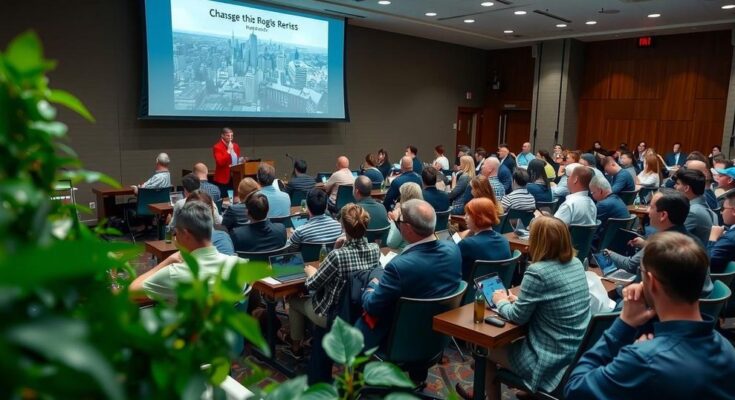UN climate negotiations have historically struggled to achieve consensus, with significant sessions such as COP6 and COP15 illustrating the challenges faced. COP6 in 2000 saw talks suspended due to political uncertainty in the US, while COP15 in 2009 ended in disappointment despite high hopes for a binding agreement. More recently, COP16 on biodiversity failed to commit resources for nature preservation, prompting calls for renewed discussions in 2025.
In recent UN climate negotiations in Baku, negotiators found themselves grappling with entrenched disagreements, reminiscent of prior failed sessions. Since the advent of these conferences in 1995, numerous gatherings have deteriorated into discord, with some entirely collapsing due to a lack of consensus. A notable instance occurred during COP6 in The Hague in 2000, where talks had to be suspended amidst political tensions surrounding the razor-thin US presidential election. This uncertainty hampered progress, leading to a dramatic cessation of negotiations, as emphasized by climate diplomacy veteran Alden Meyer of E3G.
COP15 in Copenhagen in 2009 exemplified high expectations that culminated in significant disappointment. Following the election of Barack Obama, global attention pivoted toward Copenhagen, anticipating a sweeping climate accord. However, the expectation that world leaders would finalize decisions instead resulted in stagnation, with smaller nations feeling marginalized. Delegates ultimately failed to formalize the Copenhagen Accord as a UN agreement, leading to notable discontent among member states. Paul Watkinson, a former French negotiator, highlighted logistical failures, pointing out that “in Copenhagen, there was no longer anything to eat or drink on Saturday.”
In a more recent development, the COP process on biodiversity concluded without consensus, as delegates were unable to commit to funding efforts to halt environmental degradation. The COP16 held in Cali, Colombia extended late into the night, ultimately collapsing due to a lack of sufficient attendance. Following this incident, Colombia has proposed resuming discussions in early 2025 as the climate crisis continues to demand urgent attention.
UN climate conferences have been pivotal for international climate diplomacy since their inception in 1995, aiming to foster consensus and actionable agreements among member states. However, these gatherings have often been plagued by disagreements and the challenge of achieving unanimous decisions, which are necessary for the efficacy of outcomes. Notable historical failures at significant conferences have shaped the trajectory of global climate negotiations, underscoring the difficulties in coordinating responses to climate change amidst diverse national interests and geopolitical tensions.
The history of UN climate conferences reveals a challenging landscape where ambitious goals frequently succumb to conflicting national interests, making consensus elusive. Despite optimistic hopes tied to leadership changes, like that of President Obama, the tangible outcomes often fall short of expectations, as seen in Copenhagen and recent biodiversity talks. As the climate crisis intensifies, the importance of overcoming these obstacles becomes ever more critical for future engagements in sustainable environmental governance.
Original Source: www.al-monitor.com




